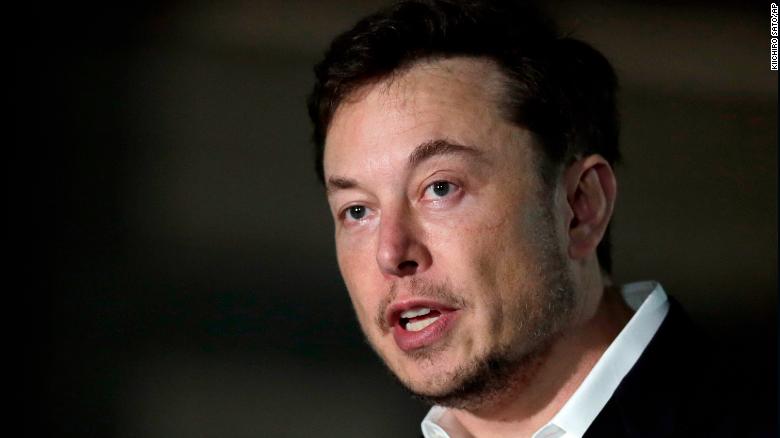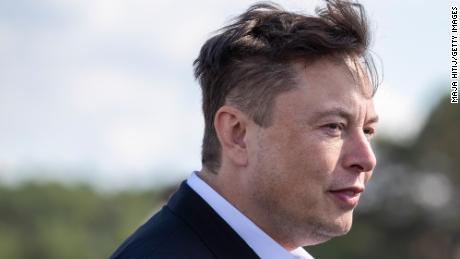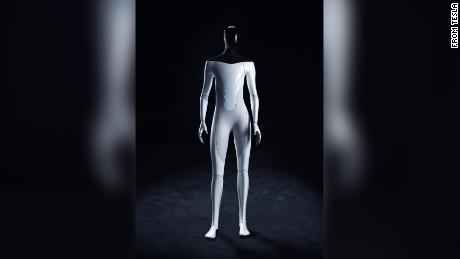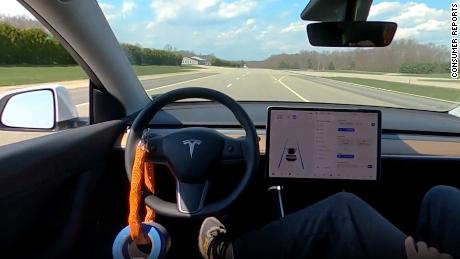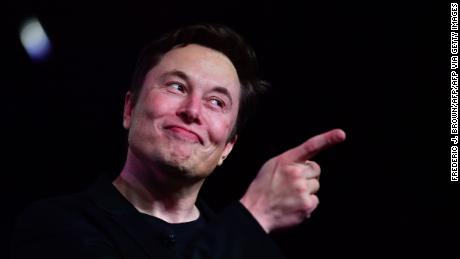New York (CNN Business)When the US Securities and Exchange Commission decided that companies could use social media to disseminate key information to shareholders, regulators didn't have a CEO like Elon Musk in mind.
Musk and the SEC are in a bitter legal staredown ÔÇö Stuart Meissner, a securities law attorney, said it reminds him of "divorce court." The government says Musk's reckless tweets could mislead investors.
How the two sides come to terms could lay out new rules for public companies.
The SEC rules allow public companies to use Facebook and Twitter to make announcements so long as investors have been alerted about which social media channel will be used ÔÇö and if the information is truthful and made available to the general public.
Security regulators count on companies and their chief executives to use social media carefully. But Musk, the CEO of Tesla, is known for his frequent and casual use of Twitter to talk about the company's plans ÔÇö and plenty of other stuff.
He has 24 million Twitter followers. He's known to spend hours online answering questions from customers, sharing memes, or musing about his next grand idea. His posts can be controversial and combative.
Musk has been locked in a bitter standoff with securities regulators over his social media use -- and on Thursday a federal judge gave them two weeks to reach an agreement on how he can post material information about the electric car company.
The SEC had sued Musk for contempt, claiming he violated a settlement agreement last year that required he gets pre-approval from Tesla lawyers before he posts about the company. Musk was required to step down as chairman and pay a fine as part of the deal, which he said has violated his freedom of speech.
Meissner said he doubts two weeks of negotiations will clear up the animosity between Musk and the SEC.
Musk's ongoing battle with the SEC highlights the difficulties of leading a publicly traded company while also being an avid social media user.
The SEC describes Musk's conduct as "reckless" and says he has published "inaccurate and material information," running afoul of disclosure rules that govern how companies should share information that can impact stock prices. Musk says the regulator is trying to silence him and he's done nothing wrong.
Some of the tweets landed Musk in hot water.
On April 1, 2018, as the car company missed production deadlines, Musk played an April Fool's joke on the world by tweeting that Tesla was bankrupt. Tesla investors weren't amused. Shares closed down 5.1% the following day, after falling as much as 8.1%.
On June 12, 2018, Musk tweeted that a Tesla reorganization is underway. The surprise announcement sent share prices higher.
On August 7, 2018, Elon Musk tweeted that he had secured funding to take Tesla private at $420 a share. The stock soared after his announcement. The problem was he hadn't secured the funding, according to the SEC. In September, the regulator filed a lawsuit against Musk, claiming he misled investors.
Musk's behavior have led some, including Tesla's second-biggest shareholder, to say the company would be fine without Musk as CEO. But some view Musk, who is also the CEO of SpaceX and The Boring Co., as inextricable from the multibillion companies he leads. A Barclays analyst estimated last year that Tesla's stock has a $130 "Musk premium," which could disappear if he leaves or is ousted from the firm.
Elliot Lutzker, an attorney at Davidoff Hutcher & Citron LLP and a former SEC prosecutor, told CNN Business that regulators and judges understand that ÔÇö and they take it into account when deciding how to punish Musk for breaking the rules.
Judge Alison Nathan told the two sides to "reasonableness pants on" as they seek a compromise. If one isn't reached, Nathan will decide Musk's fate, potentially siding with regulators and holding Musk in contempt. He could could face another hefty fine and further limits to his social media use -- and even removal as Tesla's CEO.
